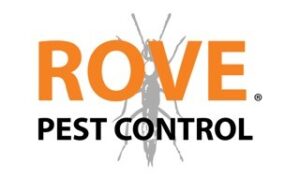You probably thought you were safe from mosquitoes since it’s winter time, but you might need to still look out for snow mosquitoes.
The dreaded combo of snow and mosquitoes
Generally, we tend to associate mosquitoes with hot, humid, sticky days of summer, but some species of mosquitoes stick around even during the colder months. Most mosquitoes become dormant during the winter months or die off, and some will lay their eggs in water just before winter and they can survive through even frozen water come spring time.
Some special species of snow mosquitoes do however remain active. They typically survive in the colder northern parts of the united states and Canada. You probably won’t run into these snow mosquitoes too much as they usually live in the forests and females feed off of mammals and birds living there while the males find what plants are available for nectar.
How mosquitoes usually survive the winter
Most mosquitoes are a bit different than Snow Mosquitoes, but they do follow a similar pattern. Pretty much all kinds of mosquitoes will lay their eggs in standing water. This happens throughout the warmer months as well as colder months.
Many mosquitoes that lay their eggs in this fashion in the fall months end up dying off during the winter, but their eggs survive, even in frozen water, and then they hatch come spring time and warmer weather.
Snow Mosquitoes are slightly different as the standing water they choose tends to be in pools of melted snow and their eggs hatch so early in the season that there may even still be snow on the ground.
Another interesting strategy some mosquitoes have used is laying their eggs inside of pitcher plants. These plants store water in hopes of attracting their prey and then close their “lids” and feed off the trapped insects. These pools of water have also been used by mosquitoes as egg laying grounds throughout the winter.
Since mosquitoes are cold blooded they don’t have many options in the winter, but we as humans may often provide them with a winter getaway. Sometimes mosquitoes will start feeding on sugars and plants as winter draws closer, rather than on blood to greatly increase their size, and from there, seek out warmer spots to live.
For example, some mosquitoes will get as close as they can to warm surfaces, such as in attics in homes or on other potentially warmer areas humans create, to absorb some of the heat and hibernate through the winter from there.
Snow Mosquitoes have extra protection
Now, most mosquitoes would simply freeze as temperatures dropped too low, which is why most die off or at least go into a type of hibernation called diapause, but Snow Mosquitoes have some extra abilities to keep them safe.
One thing that Snow Mosquitoes do is that they actually burrow under the snow and use the insulation of the packed snow to keep warm throughout the colder winter months. In addition to that, they also have a special ability to remove excess water and fluids from their bodies so they can survive in temperatures well below freezing, without actually freezing themselves.
While Snow Mosquitoes aren’t something you’ll run into as commonly as regular mosquitoes in the summer, it still is interesting to know that they could be out there buzzing around all year!
Did This Blog Help You? We would greatly appreciate if you could comment below and share on Facebook
Have a question for us? Be sure to reach out on Facebook: www.facebook.com/RoveMinnesota
P.S. Have a pest issue? As a first time customer with Rove Pest Control – Click Here to get $50 off your initial service!
Did you get value from this post on, Are snow mosquitoes real, please retweet below.
